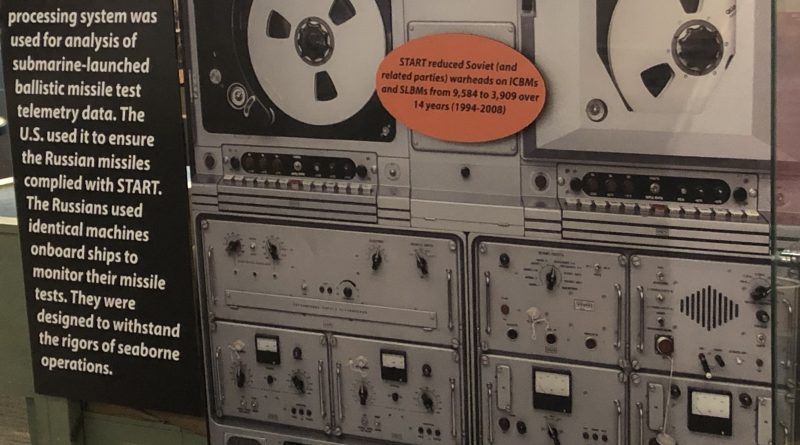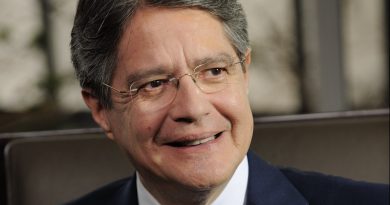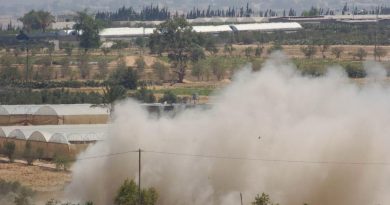U.S. and Russia Near Extension on New START Treaty
Timothy Georgetti
Staff Writer
On Tuesday, October 20, the United States and Russia edged closer to renewing the last major nuclear arms control treaty between the two nations. According to POLITICO, the New Strategic Arms Reduction Treaty (New START) is set to expire on February 5, 2021 and has been the subject of unpromising negotiations between the Trump administration and Putin government since the beginning of this year. This newfound cooperation and apparent will to renew New START is owed to a Russian verbal commitment to a one-year nuclear warhead freeze and a one-year extension of New START.
New START, which was signed in 2011 under the Obama administration, caps both Russian and American strategic nuclear arsenals, which consist of intercontinental ballistic missiles, submarine launched ballistic missiles, and nuclear capable bombers. The US State Department explains that New START limits these strategic nuclear arsenals at 1,550 deployed nuclear warheads and 700 deployed missile systems or bombers.
Much of the uncertainty surrounding the fate of this treaty stemmed from the Trump administration’s rhetoric. Despite the agreement’s built-in renewal mechanism, which allows for up to a five-year extension, and continued Russian interest in renewal, the Trump administration has held out in hopes of a negotiating more ambitious deal. CNN reports that the Trump administration’s main qualms with New START are its exclusion of China and exclusive focus on strategic nuclear weapons.
Prior to Russia’s Oct. 20 statement, the Trump administration had argued that because New START does not involve China, the administration’s top foreign policy priority, the treaty should be allowed to lapse without renewal. However, according to CNN, China refuses to participate in a trilateral nuclear arms control agreement with the United States and Russia.
The Brookings Institute points out that the administration also finds fault with New START’s limited scope. The current treaty does not limit the number of strategic warheads that each state can have in reserve, nor does it limit tactical nuclear weapon systems, which are shorter-ranged, smaller payload weapon systems.
The Washington Post indicates that while the Trump administration appears to have backed away from its insistence on Chinese participation in New START, it has not swayed from its insistence on a complete nuclear warhead freeze.
For those reasons, the chance of New START’s extension was slim until the Russian government verbally agreed to negotiate a freeze on all nuclear warheads. The administration, which is likely using the prospect of renewing the treaty to aid Trump’s current reelection campaign, has now offered to move forward with extending New START for another year, according to the Wall Street Journal. During this time, the principle goal will be for the U.S. and Russia to negotiate a more comprehensive nuclear arms control treaty.
This commitment to New START, however, is dependent on the Russian verbal agreements becoming legally binding. Despite Russia and America’s newfound common ground, the Wall Street Journal cautions against premature celebration. The proposed nuclear warhead freeze is a new type of nuclear arms control; no nuclear arms control agreement has ever attempted to limit the actual number of warheads a nation possessed. While the U.S. has preconditioned its renewal of New START on a bilateral agreement limiting the total number of nuclear warheads, the proposed agreement is separate from the New START treaty itself and likely to present its own set of challenges.
One of the biggest obstacles to this warhead freeze is the issue of verification to ensure that both parties uphold their end of the agreement. The currently proposed verification methods are intrusive, demanding that Russia and the U.S. give each other access to some of their most sensitive nuclear facilities. The Wall Street Journal reports that this has left many nuclear arms control experts wondering if such an agreement would require the invention of new technology in order for new verification impositions to be acceptable to both sides.
While the current efforts between Moscow and Washington to renew New START bode well for the treaty’s extension, there are still many critical challenges that must be solved before it can become a reality.



